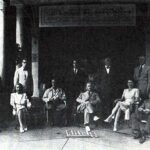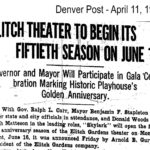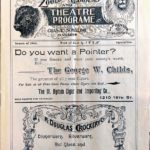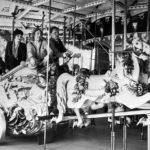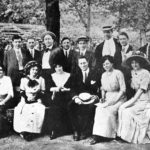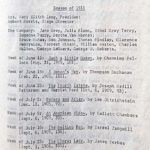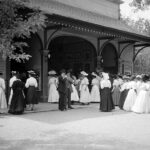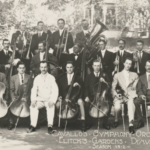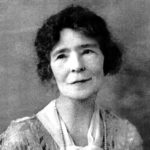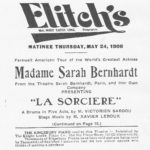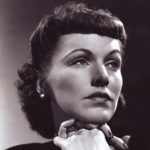“By the start of the 1902 season every building about the resort had been freshly painted and renovated. The Theatre evinced significant changes and improvements to such an extent that it was scarcely recognizable, even to its oldest patrons. Aisle steps had been entirely abolished and replaced by slanting aisles. The stage had been widened. The foyer which surrounded the auditorium was removed, the space being given to the auditorium proper. Seats were added. The number of exits was increased to nine on the first floor and to four in the balcony, thereby assuring a quick and safe exit for the audience. The number of exits allowed for a “complete emptying of the house in two minutes from the time of curtain fall, which is promised for this summer at 10:30 p.m. promptly.”
Elitch Theatre was examined for safety and the result was favorable and noted in the Denver Times.
As a result of the visit of the building inspectors to the Theatre at Elitch Gardens the verdict has been given that it is the best constructed and safest structure of its kind in the United States. The Theatre, which has been remodeled, has 175 seats added to its former seating capacity. Three more aisles have been made and an exit is placed at each aisle. The Theatre is in fine condition.
[Borrillo, T. A. (2012). Denver’s historic Elitch Theatre: A nostalgic journey (a history of its times). Colorado. p. 50]
For the week of June 1, 1902, American’s leading opera Contralto — Jessie Bartlett Davis — appeared at the theatre for a one-week run of A Midsummer Night’s Dream.
“A characteristically clever stroke of business, and a brilliant achievement on the part of Mary Elitch Long, is the securing of Jessie Bartlett Davis for the production of A Midsummer Night’s Dream. The combination is superlatively attractive. Jessie Bartlett Davis has no peer among American singers.”
[Rocky Mountain News, May 28, 1902.]
Theatre Staff:
- Mary Elitch Long, Proprietor and Manager
- T. D. Long, Business Manager
- Walter Clarke Bellows, Stage Director
Resident Company:
- Lillian Lawrence
- Nelette Reed
- Antoinette Walker
- Louise Rial
- Florence Rial
- Katherine Field
- John Mason
- Frederick Perry
- John Sullivan
- Joseph Wheelock
- William H. Tooker
- Harry Willard
Productions:
- Week of May 27: The Charity Ball, by David Belasco and Henry C. DeMille (1889).
- Week of June 3: The Senator, by David Lloyd and Sidney Rosenfield (1889).
- Week of June 11: Cyrano de Bergerac, by Edmond Rostand (1898)
- Week of June 18: Too Much Johnson, by William Gillette (1894).
- Week of June 25: Trilby, by Gerald Du Maurier, adapted by Charles Nedler (Apr. 15, 1895).
- Week of July 2: Alabama, by Augustus Thomas (1891).
- Week of July 9: The Ironmaster, by J. W. Prichard, from the French of George Ohnet. Frederick Perry joined the resident company.
- Week of July 16: Madame Sans-Gêne, by Victorien Sardou (1895).
- Week of July 23: Diplomacy, by Victorian Sardon (1878)
- Week of July 30: Cyrano de Bergerac (popular repeat production).
- Week of Aug. 6: Camille. By Alexandre Dumas, fils (1854).
- Week of Aug. 13: A Scrap of Paper, by Victorien Sardou (Sunday matinee through Wednesday evening). Madame Sans-Gene, by Victorien Sardou (Thursday evening through Saturday evening).
- Week of Aug. 20: The Private Secretary, by william Gillette. Maude Fealy joined the company as leading lady.
- Week of Aug. 27: The Masked Ball, by Clyde Fitch (1892).
- Supplemental Season:
- Week of Sept. 7: The Merry Wives of Windsor, by William Shakespeare, featuring Edmund Lyons.
- Week of Sept. 11: Deacon Brodie, by Robert L. Stevenson.
